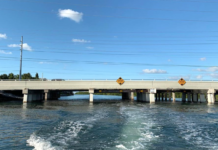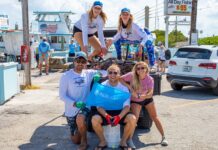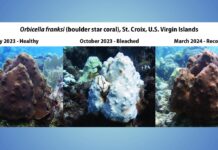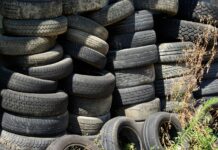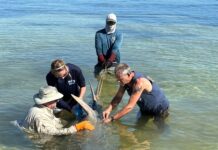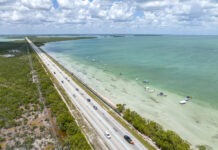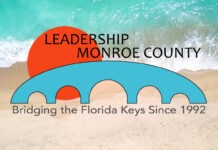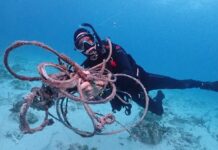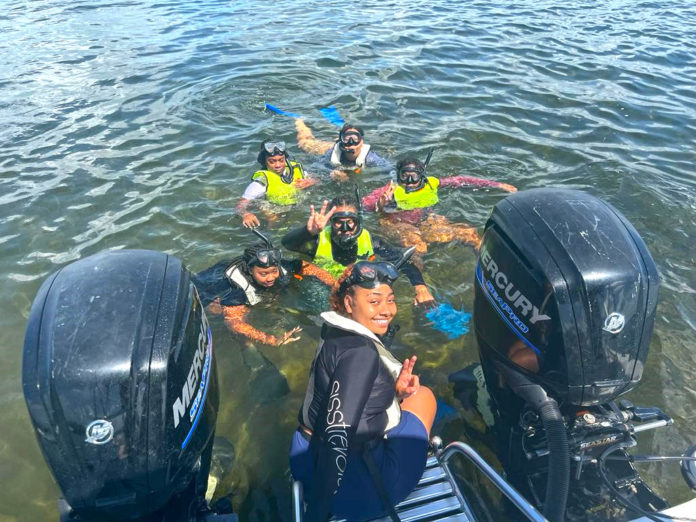
The ocean was the classroom and the lessons learned were invaluable.
“Honestly, this has been one of the best experiences I’ve ever had,” said Sherma Prince, a geography teacher from Dominica.
From July 18 to July 22, nine educators from seven Caribbean countries found themselves immersed in workshops at MarineLab Key Largo. The curriculum focused on learning how to preserve ecosystems; including sea grasses, mangroves and coral reefs.
“What I really loved about it was the fact that we went out into the ocean and got that practical, hands-on experience,” said St. Lucia science teacher Ansha Mitchell. “A lot of our people back home, children as well, they are unaware of the importance of our marine ecosystems.”
This was the first year for the Caribbean Teacher Initiative at MarineLab. It was made possible thanks to a generous donation from the Ocean Conservation Exploration and Education Foundation. The goal is for teachers to take what they learn back to students in their home countries.
“I am going to share the fact that we humans, we cause a lot of distress in the environment,” said Jervaughn Charles, a fourth grade teacher from St. Lucia.
“One of the labs that really spoke to me was the micro plastics lab,” added Charles.
“The water that we take for granted in the ocean is filled with plastics that are killing the food that we eat and it’s hurting the animals that we love so much.”
Joseph Wells teaches marine mechanics and engine repair to college students in the British Virgin Islands. He plans to talk to students about what happens if oil is not disposed of properly, consequences of overfishing and global damage caused by degrading the environment.
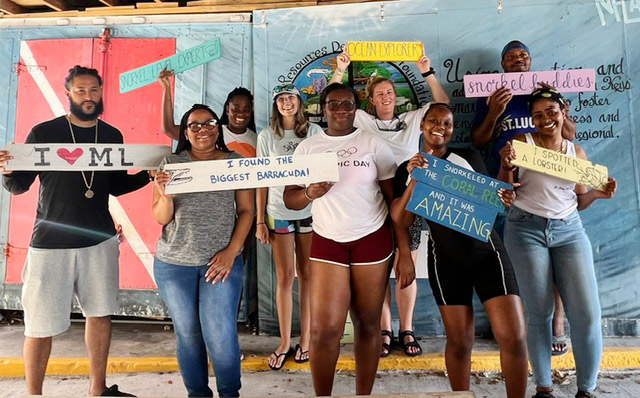
“The whole goal is to ensure that we can continue enjoying the water, make a living with it, and still ensure that we don’t damage the environment that we’re in,” said Wells.
Ocean trips and classroom work were packed into the marine ecology workshop. The days started at 8 a.m. with breakfast and finished up around 9 p.m. There were two field trips a day out into the coral reefs, mangroves or sea grasses. Discussions, labs and lectures followed.
“It was very long days, but we got to cover a lot of information,” said Leslie Hickerson.
Hickerson works for the Nature Foundation of St. Maarten.
“There are lots of new things that have come out since I left school ages ago. It’s really nice to be refreshed on information from younger scientists and educators about the different ecosystems,” said Hickerson.
Cassandra MacDowell is with the Mangrove Education Project in the Cayman Islands. She said the workshop was an excellent opportunity to network and brainstorm with other Caribbean educators.
“As a region, sometimes we’re a bit further away from each other so it’s great to come together here to be able to see different teaching techniques, what other Caribbean countries are doing and how we could possibly implement those same techniques where we are,” said MacDowell.
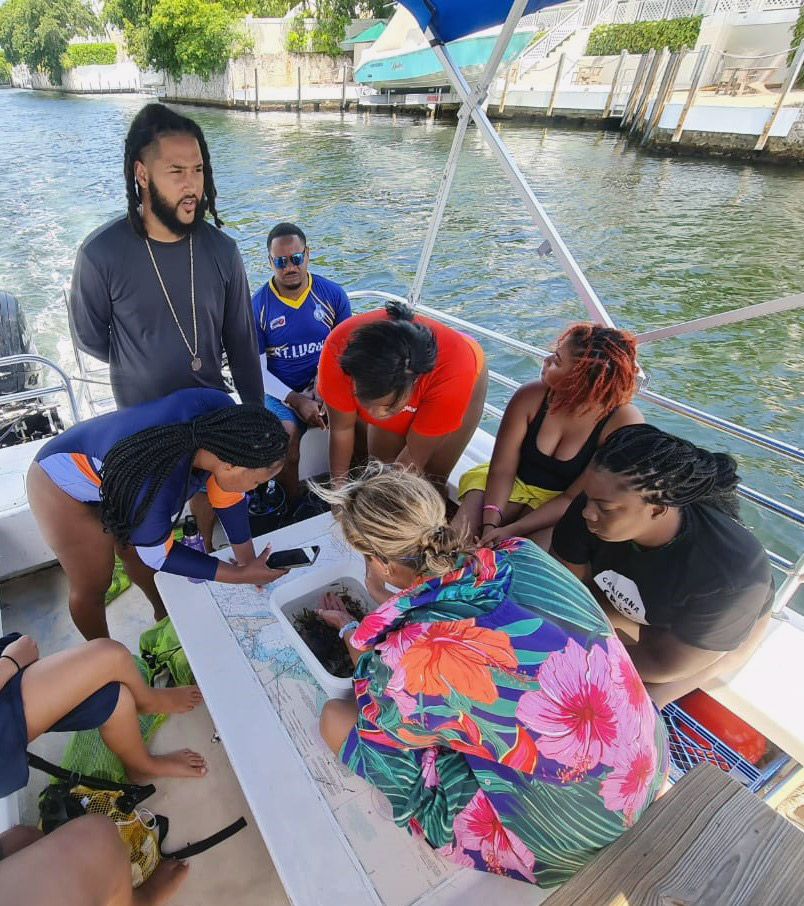
British Virgin Islands science teacher Jian Jeffers, like several of the Caribbean teachers, had never snorkeled before this trip.
“The most interesting part was the snorkeling; that was the newest thing for me, partly the scariest as well. Going under the ocean, having all these fish coming toward you, so that was definitely different,” said Jeffers.
Mitchell says the snorkeling experience helped her conquer her fear of sharks.
“We went far out into the pelagic waters and it was scary but at the same time fulfilling and exciting. I can definitely say that I came out alive, ” said Mitchell with a laugh.
“The Caribbean Teacher Initiative is the latest program in our ongoing effort to promote universal awareness of the importance of marine conservation,” said MarineLab CEO Ginette Hughes. If funding is secured, teachers from the Caribbean will be invited back next year.
MarineLab was founded in 1970 in the U.S. Virgin Islands. The non-profit conservation program came to the Upper Keys in 1984. Now roughly 5,000 students and teachers pass through its onsite programs every year. The coastal campus on Shoreland Drive in Key Largo has dorms that can sleep up to 100 students. There is a full cafeteria, serving up breakfast, lunch and dinner daily. Five boats take students on field trips twice a day and provide an interactive experience.
Hughes says MarineLab’s education model of discussion, exploration and concept reinforcement works well.
“It’s really important because you’re not going to save something unless you have that emotional connection to it,” said Hughes. “Having that emotional connection to the ocean makes them want to save it, want to work toward changing their lifestyle, supporting policies that will help save the ocean because, it’s all we’ve got.”
More information is at www.marinelab.org.













